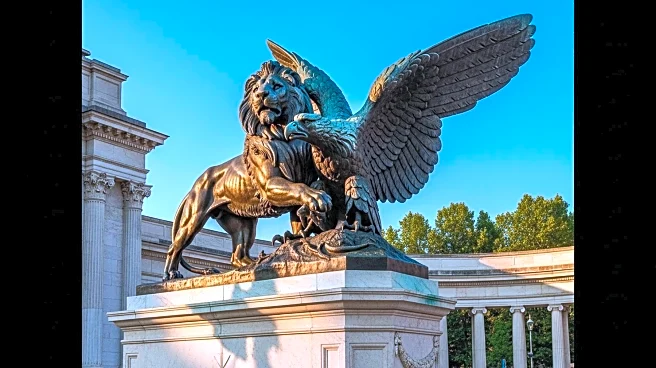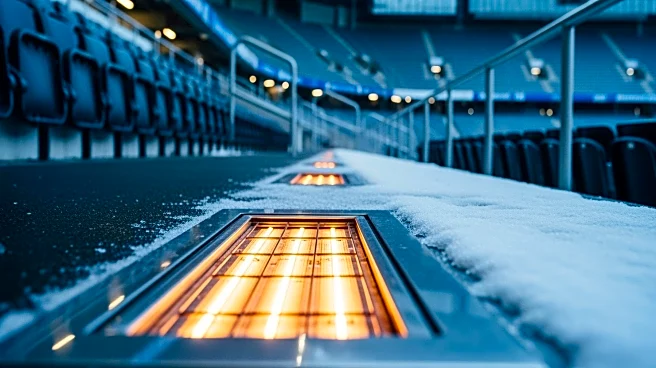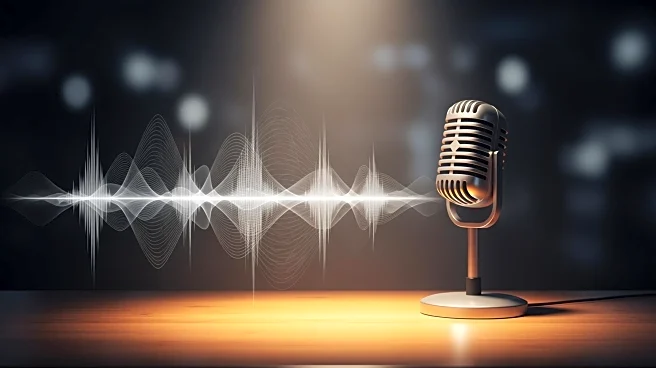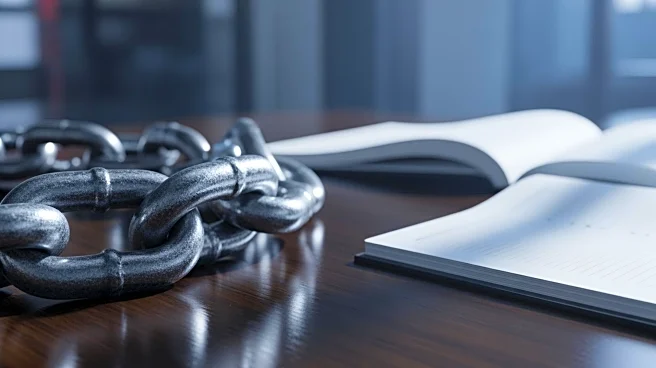What's Happening?
A controversial statue depicting President Trump and Jeffrey Epstein has been reinstalled on the National Mall. The statue, titled 'Best Friends Forever,' was initially removed by the National Park Service for not complying with permit requirements. The anonymous group of artists responsible for the statue, known for their protest installations, managed to secure a new permit, allowing the statue's return. The statue, which portrays Trump and Epstein holding hands, was restored after being damaged during its removal. The National Park Service confirmed the permit was granted, allowing the statue to be displayed once again.
Why It's Important?
The reinstallation of the Trump-Epstein statue highlights ongoing tensions between artistic expression and public policy. The statue serves as a critique of President Trump's past association with Epstein, a convicted sex offender. This event underscores the broader societal debate over public art, free speech, and the role of government in regulating such expressions. The statue's presence on the National Mall, a significant public space, amplifies its impact, drawing attention from both supporters and critics. The situation also reflects the complexities of permitting processes for public demonstrations and art installations.
What's Next?
The future of the statue remains uncertain, as it depends on the National Park Service's ongoing assessment of the permit and public reaction. The artists have expressed a desire to comply with regulations, indicating potential future negotiations with authorities. Public and political responses may influence whether the statue remains on display or faces further challenges. The situation may prompt discussions on the balance between artistic freedom and regulatory compliance in public spaces.









